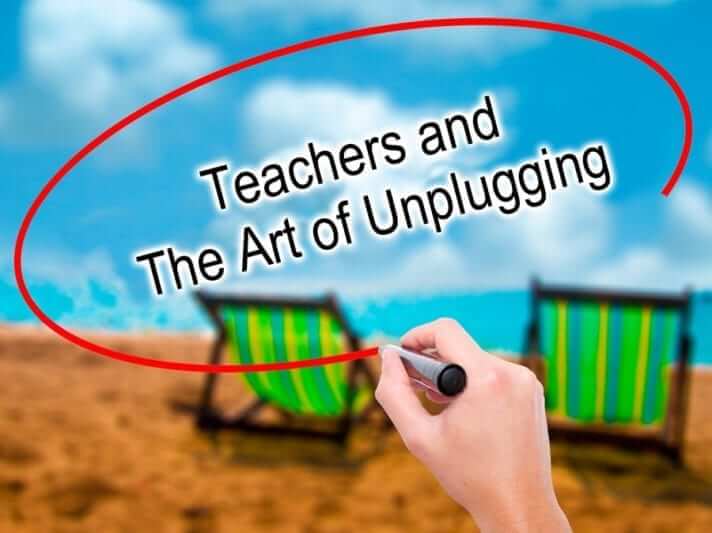Teachers and The Art of Unplugging
Teaching is what I like to call an all-day affair. It’s not an errands-based job. It’s not something that you can leave at work. It’s not something you can completely ignore when you walk through the doors and into your form of transport; ready to unload and not think about it until you walk back in the next day. It’s something that is difficult, if not sometimes impossible, to “leave it at your desk” after that final ring of the bell.
I remember my first and second year as both a teacher, and head coach of a varsity program. I was working tirelessly for hours not only after school, but on the weekends as well. I’d be in coffee shops, at my kitchen table, on long car rides, or just generally daydreaming (read: worrying) about what would happen in school the next day or week.
The idea that teaching is difficult to unplug from is not new by any means. However, it has gotten increasingly worse as technology, Remind 101, e-mail, and the ever active “parent portal” has crept into our lives. Don’t get me wrong, these are all incredible tools to track student achievement, and to keep students involved in their learning. They start to get dangerous, however, when you forget to remember that you are a human being first, and a teacher second.
Human beings have lives. They have families they devote time to, and activities that they find pleasure in. It took me a few years of time wasted worrying and re-thinking lessons (albeit a little obsessively) and saying no to friends to finally realize that the key to being a good teacher, is being a good human being outside the school walls.
Yet, the art of unplugging is what so many teachers find fear or impossibility in doing. It’s the subtle and exact art of letting things go, and giving yourself a break that will give you the strength and energy to do better tomorrow. I discovered, after conducting personal experiments of actually enjoying my weekends and worrying about school during school hours that I was a much more entertaining, and effective teacher. It was the time I spent with my friends that gave me perspective and A breath of fresh air to add to a lesson — not the extra hours I spent laboring, red-eyed, over an already bedraggled idea on a late Thursday afternoon.
So the question that we should ask ourselves when giving up our lives for our school work seems to be the answer, is not how much time do I need to put in to be a perfect teacher, but how am I supposed to become a good teacher if I don’t? Now go make yourself a cocktail.
About the Author: Mandi Waldron is an English teacher at Howell High School. She is also the coach of the boys and girls varsity swim team.





